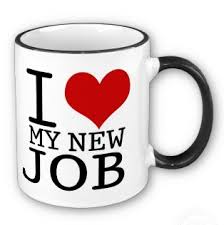By George Bernocco, CPRW
You got the interview, nailed it and now you’re awaiting a decision from the company. Most likely the call you’re waiting for is from Human Resources offering you the position. The job you applied for may have listed the salary in the posting itself, or it was discussed by the company to you in the interview, or you have no clue what they are going to put on the table. Regardless, you want to show the employer that you are worth more but don’t want to frighten them away. Here are some ideas to help you with this difficult process:
Interview
It is considered bad practice for you to bring up salary. The employer can bring it up and discuss it with you during the actual interview, but they must have initiated the conversation. This may catch you off guard, because if you have not done your research, you may not have an answer for them so soon. Be prepared that the employer might bring up salary, and have an answer if they do.
Research
Do you know the average salary in the United States for your career field? How about the median salary in your state? Or even district? Labor departments, federal and state, keep records of this information. Here are a few websites that can help you:
- http://www.careeronestop.org/
- http://www.mynextmove.org/
- http://www.myskillsmyfuture.org/
- http://www.onetonline.org/
When you have numbers to work with, you can do the math and produce a salary number that isn’t too high or too low. Just remember that average salaries factor in outliers, people who were paid abnormally high and low. Median salaries are what most people in your career field are being paid.
Another way to research how much a company pays its employees is by knowing someone who works for them. Asking an employee can prevent you and the employer from wasting each other’s time if the job isn’t financially beneficial to you. You can also get an idea of the atmosphere of the company, and see if it’s a place you would like to work.
Discussion
When you’re discussing your salary with the potential employer, you should remember the job posting. I would go as far as to say that you create a points system on the posting. Break down the posting by its requirements and preferred knowledge. Add +1 for everything in the posting you have exceeded. Put a 0 next to anything you have met the requirements or preferred knowledge. And then if it comes to it, -1 next to anything which you have not met. Just note this is for your general knowledge as to how much you should be asking for, this is not something you’d want to share in detail with the employer. You would want to highlight anything you’ve added a +1 next to. You should not necessarily discuss with the employer any -1 items as they serve as a reminder to not ask for too much since you haven’t met or exceeded all the requirements. Chances are the employer knows what your “-1’s” are and they used them to adjust your salary.
Prioritize your list with the most important towards the top. Here is an example:
Job Posting I Have Points
5 years experience 10 years experience +1
Bachelors in Science Masters in Science +1
Basic computer skills Basic computer skills 0
Expertise with MS Excel Basic knowledge of MS Excel -1
Ask the person who you are negotiating with what the salary is based on. Whatever they mention, you should be prepared to have an answer. If your education (and/or experience) exceeds the minimum requirements, and the employer states that is what the salary is based on, be prepared to remind them how you exceeded the minimum.
Knowledge
When you are armed with knowledge, you can successfully negotiate your salary without disqualifying yourself. Employers do expect new employees to negotiate, and it’s important to feel comfortable in the process. Be realistic as you should only apply for jobs that you know can earn you a profit. There may be times where the employer and you do not reach an agreement. If you cannot reach a mutual agreement with the employer, it may be for the best as you do have financial responsibilities.












